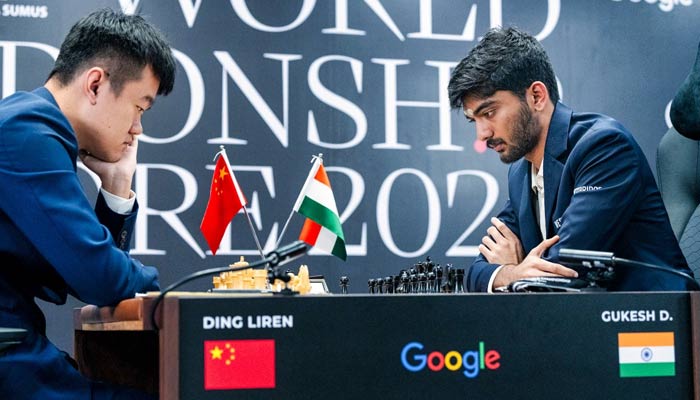Nine rounds. Four and a half points each. Six straight draws. Gukesh vs. Ding Liren is proving to be the attritional contest many anticipated.
As Garry Kasparov once said, a World Championship match has always been a battle for the title of the best player in the world. Clearly, after nine games, it’s evident that this World Chess Championship has showcased the more mortal sides of its players compared to previous generations.
In contrast to the intense drama and innovation seen in encounters like Boris Spassky vs. Bobby Fischer, Garry Kasparov vs. Anatoly Karpov, or even Viswanathan Anand’s matches, this championship feels relatively subdued. Ding and Gukesh are engaging in a calculated, safety-first approach to chess, focusing on risk minimisation to avoid decisive blunders. However, this conservative strategy might ultimately cost Gukesh more in the long run.
Ding’s White Advantage
With only five games remaining, Ding Liren holds a key advantage: he will play three of these games with the white pieces, while Gukesh has only two. White allows players to dictate the game and take the offensive, which has been crucial for Gukesh in the past. His only classical win against Ding came when he played with white.
Ding’s record with black pieces, however, adds another layer of concern for Gukesh. Ding has demonstrated his ability to win with black in classical matches against the Indian prodigy. This imbalance in opportunities to dictate play could test the mental resilience of the 18-year-old as the tournament reaches its climax.
Ding’s Brilliance Under Time Pressure
Another concern for Gukesh is Ding Liren’s exceptional performance under time pressure. In Games 7 and 8, Gukesh held the endgame initiative and a significant time advantage—sometimes close to an hour more on the clock than Ding. Yet, he failed to convert these opportunities.
Ding’s accuracy and composure under time constraints have proven to be a decisive factor. If these games are any indication, taking the match to rapid tiebreakers could backfire for Gukesh. Ding’s superior ELO ratings in rapid (2776 vs. 2654) and blitz (2785 vs. 2615) chess further highlight the risks of letting the match head into shorter formats.
Gukesh’s Path to Victory
To stay competitive, Gukesh must push for a win before the final rest day. A strong performance after the break could create a decisive moment for Indian chess, making December 13 a historic day. Otherwise, the championship could slip away in a matter of days.

